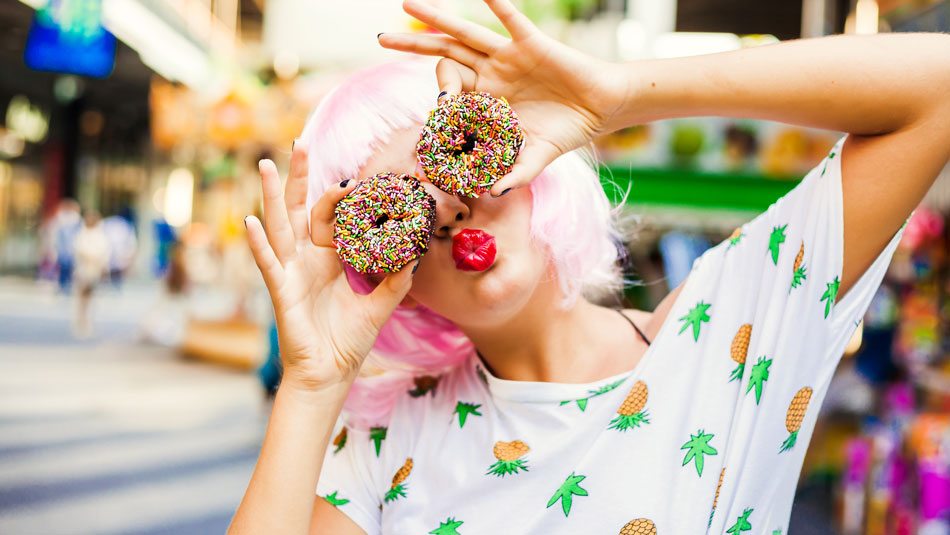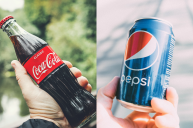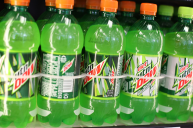Are people with a sweet tooth really sweeter? Are bitter food lovers really bitter? Do folks who love spicy foods really have spicy personalities? It seems that old idiom "you are what you eat" may be a lot truer than we thought, especially when it comes to tastebuds and food preferences. According to Broadly, there's mounting evidence that "while access, culture, and habits are huge factors in determining what foods we consume, in the last few years, a handful of studies have shown that personality traits also have some influence over what we choose to put in our mouths."
Videos by Wide Open Country
For example, thrill-seekers — your skydivers, fast drivers, rollercoaster riders, and general adrenaline junkies — more than likely order their wings hot, hotter or hottest.
John Hayes, an associate professor of food science at Pennsylvania State University, and former Penn State grad student Nadia Byrnes, performed two studies on the relationship between personality and preference for spicy foods.
In the first, they compared the results of a personality survey with the results of a test in which people rated the intensity of capsaicin — the stuff that gives chili its heat.
Hayes and Byrnes found "A strong positive correlation [...] between the liking scores of spicy meals and Sensation Seeking." Those especially sensitive to reward — the centers-of-attention, lives-of-the-party and award-winners.
Hayes' and Byrnes' second study, published in 2016, further confirmed the former study's findings and clarified a second point: that, in Hayes' words to Broadly, "personality influences liking, which influences intake, but personality can also influence intake without actually influencing your liking for the food."
Hayes and Byrnes are far from the only ones doing research in this field.
A 2011 study from North Dakota State University indicates people with a "sweet tooth" are, in fact, "sweeter."
That paper — "Sweet Taste Preferences and Experiences Predict Pro-Social Inferences, Personalities, and Behaviors" — included a series of five studies. In one study, it was determined participants who ate a sweet food (a specific brand of chocolate), instead of a non-sweet food or no food were more likely to volunteer to help another person in need.
Another in the series found that people believe that a person who likes sweet foods like candy or chocolate cake (compared to foods from the other four taste types) is also more agreeable or helpful, but not more extroverted or neurotic.
According to Dr. Michael D. Robinson, NDSU professor of psychology and one of the study's authors, the studies' results strongly suggest a real link "between sweet tastes and pro-social behavior. Such findings reveal that metaphors can lead to unique and provocative predictions about people's behaviors and personality traits."
Sweethearts like sweet things, but it goes the other way, too.
Work done at the Austrian University of Innsbruck by Christina Sagioglou and Tobias Greitemeyer found that a preference for bitter tastes "are associated with more pronounced malevolent personality traits, especially robustly with everyday sadism."
As Sagioglou and Greitemeyer wrote, "General bitter taste preferences emerged as a robust predictor for Machiavellianism, psychopathy, narcissism, and everyday sadism [...] the results suggest that how much people like bitter tasting foods and drinks is stably tied to how dark their personality is."
Additionally, a great deal of work is being done at Chicago's Smell and Taste Treatment and Research Foundation. There, neurologist and psychologist Alan Hirsch — author of "What Flavor is Your Personality" — has for years been collecting correlative data between personality and flavor profiles.
For example, Hirsch cited one study for Broadly commissioned in the early 2000s by a U.S. Stolichnaya distributer paired personality surveys with blind taste-test results, demonstrating a correlation "between vodka flavor preferences and personality type."
Peach vodka drinkers are lively and dramatic; cranberry vodka drinkers work too hard and are bland in bed; vanilla vodka drinkers are impulsive and social — these are just a few of its findings.




